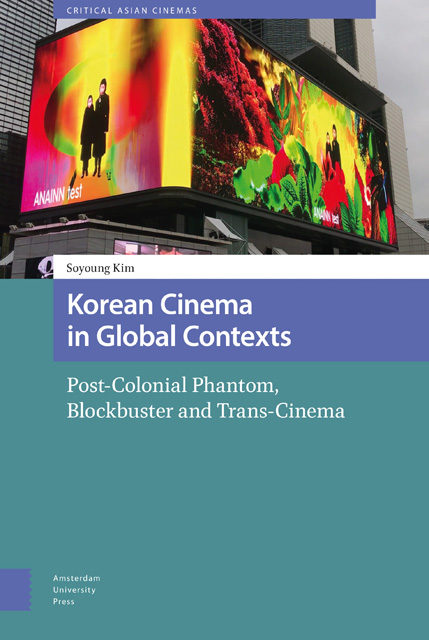6 - The Birth of the Local Feminist Sphere in the Global Era : Yeoseongjang and “Trans-Cinema”
Published online by Cambridge University Press: 16 November 2022
Summary
Abstract
In this chapter, I will adopt and adapt two terms from other contexts as a means of reframing an understanding of Korean cinema history and intervening in that history. I will use yeoseongjang and “transcinema” to identify specific counter-strategies deployed within feminist cultural-political practices. Furthermore, I propose this use of these terms as another counter-strategic response to the operations of legitimation, delegitimation and exclusion that permeate dominant discourses, institutional practices and habits of signification underlying the formation of canons and archives, cinematic and otherwise. In particular, yeoseongjang and “trans-cinema” will articulate modes of cultural production as alternatives to the Korean blockbuster, often by reinhabiting the various digital communication devices most closely identified with the global capitalism essential to the blockbuster's hegemony.
Keywords: trans-cinema, yeoseongjang, women's sphere as counter public sphere, digital feminism, archive
In one sense, this essay responds to a marked proliferation of disparate forms of feminist production in South Korea. Feminist websites provide an interesting case of activism in the way they are linked to both existing and newly formed feminist publishing houses, street protests, performances and women's film festivals. On January 29, 2002, a fire broke out in a bordello in the city of Kunsan. Since the building was designed to confine the women to sexual slavery, there were no exits, and fourteen sex workers died with no way of escape. On February 8, various women's groups held a ritual funeral at the site of the tragedy. On the same day, other women's groups and their supporters organized a street funeral protest in front of the police headquarters in Seoul. These rituals are known as a yeoseongjang, which literally means “women's funeral.” I would like to exploit a peculiarity of the use of Sino-Korean terms here, to note that jang, meaning “funeral,” is a homonym with jang, meaning “space” or “sphere.” Thus, in adopting the term yeoseongjang, I am also adapting it to include both the meanings of “women's funeral” and “women's sphere.” This doubled meaning not only serves new purposes, but also highlights important aspects of the events from which I have taken the term. The funerals conducted in Kunsan and Seoul did not merely mourn the deaths of women, but also insistently affirmed the value of their lives.
- Type
- Chapter
- Information
- Korean Cinema in Global ContextsPost-Colonial Phantom, Blockbuster and Trans-Cinema, pp. 113 - 134Publisher: Amsterdam University PressPrint publication year: 2022



